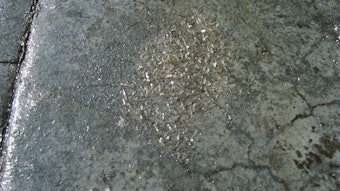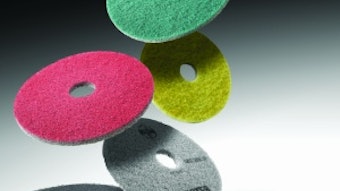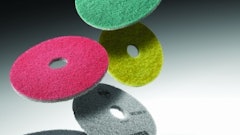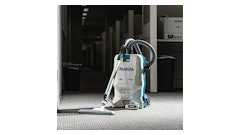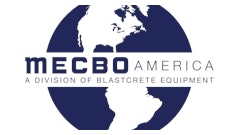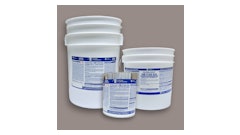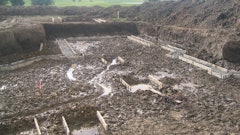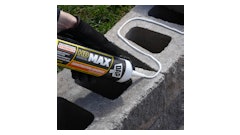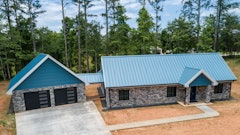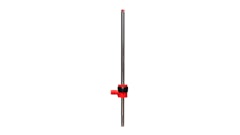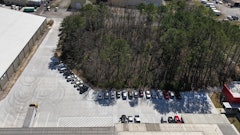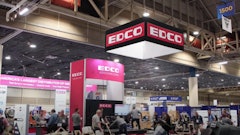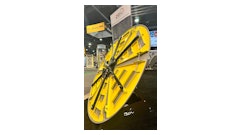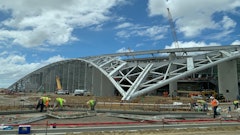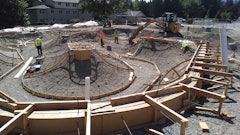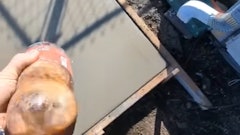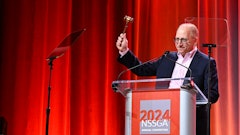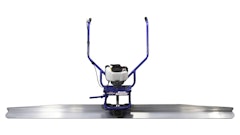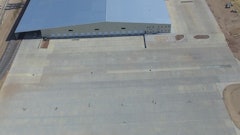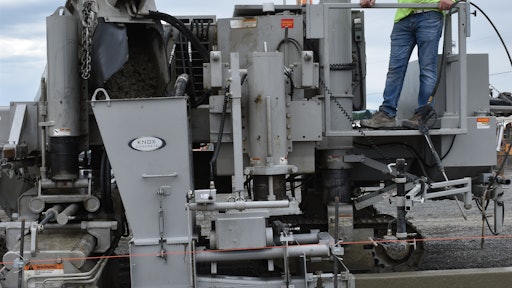
Competition in the residential market is fierce, and it can be hard to set yourself apart from the contractor down the road. So as the economy continued on an upward trend, Knox Concrete saw an opportunity to take on more commercial jobs. The challenge with large public infrastructure jobs, however, is they have tight deadlines and strict regulations. To overcome these challenges, the concrete contractor, which employees about 30-35 people, turned to Power Curbers.
Knox Concrete is based out of Lewiston, Idaho and primarily serves the Lewiston-Clarkston Valley, which reaches from Idaho to Washington. They perform all stages of concrete from structural foundations to site work to decorative.
“With the economy being so good, we are pushing toward a lot of big commercial projects like schools, new highways and a lot municipality work. Over the last couple years with the help of Power Curber, we’re able to do thousands of feet per day to tackle these big jobs,” explains Travis Knox, owner of Knox Concrete.
“Before you could only do a few hundred feet with a big crew. Now you can do thousands and thousands of feet, which puts us in a whole different category of business. And there is less competition, less people doing that, so that’s really our new niche,” he adds.
Fleshman Way Interchange Project
In 2018, Knox Concrete put their Power Curber through its biggest test rehabilitating a notoriously dangerous and under-designed intersection. The Fleshman Way Interchange in Asotin County, Wash. sees over 25,000 vehicles a day, with many of them crossing the state line into Idaho. The reconstruction of this crossing was a huge undertaking, going from an outdated design with stops and left-turns to a free-flowing system with two roundabouts to promote safe merges.
Using five different molds on a Power Curber 5700-B, Knox Concrete placed over 9,000 linear ft. of roll curb, curb and gutter, and under guardrail curb. Thanks to the 5700-B, Knox says they could easily transition from roll curb on ramps to radius work on roundabouts to tricky curb slipped under guardrail.
“With the Power Curber, you could change the curb style in a matter of 15 minutes. It has a quick attachment that allows you to change it in no time,” Knox explains. Curb machines eliminate much of the manual finishing work, so that the crew just has to do a little finessing with a broom and brush.Knox Concrete
Curb machines eliminate much of the manual finishing work, so that the crew just has to do a little finessing with a broom and brush.Knox Concrete
A highlight of the job was on the two roundabouts. Utilizing the hydraulic adjustable offset on the 5700-B, Knox Concrete was able to place the complete circle of curb until they drove the mold right over where they started. This minimized manual finish work and saved time.
Coming in ahead of time and under budget, this was Knox Concrete’s largest job at that time, and without a curbing machine, Knox says they could not have done it.
For one thing, the time crunch on this job was a significant challenge. Knox explains that the state only gives you so long to do a job like this because they don’t want to disrupt traffic flow for an extended period. Just one flaw would have put the contractor behind schedule, with the risk of liquidated damages at a cost of about $10,000 a day.
“We went into it a little scared, thinking ‘Wow, that doesn’t give us much time to get this project done,’ so we really put that machine to the test,” adds Knox.
The elimination of manual tasks such as formwork also kept the project on track. Concrete curb work is typically very labor intensive. Knox says the paving machine, however, is formless, therefore eliminating an entire process and labor by 50 percent. While you still need a lot of labor the day of the placement, he adds that typically you can get down in one day what would normally take three weeks.
“[With typical curb and gutter jobs] you’re backs hurting, you’re packing really heavy forms every 10 ft. With this machine, as long as you have a good operator and batch plant, you can make the work almost effortless. It is 80% easier to finish it. Finishers just have to do a little finesse work with a broom and brush,” he adds.
Tri Partnership Public Infrastructure Project
The Fleshman Way project allowed Knox Concrete to showoff what they can do and prove they’re ability to tackle big commercial jobs. It was the first job Knox says they felt everything went as planned and proved their hard work had paid off.
“It was a big important job; it was 20 years in the making, and we finally got the opportunity to show both Idaho and Washington what we could do. We proved to two states that we can do this,” notes Knox.
The biggest challenge Knox Concrete had to overcome to get to that point was in learning to operate and work with the curbing machine, which Knox compares to flying a helicopter.
“It takes a really smart operator who can really finesse the machine. Only a few people in the world can operate them,” he explains. “It’s a challenge to operate, but once you get it dialed in, it works really well.”
Only two of Knox Concrete’s 35 employees can operate the machine, which Knox says is standard throughout the industry. Those two operators have gone through extensive training and are required to visit Power Curber’s training facility each year to receive updated training.
Besides the operators, Knox adds that it is key to have good personnel overall. While the machine eliminates a lot of manual tasks, working a job is still 50% the machine and 50% the people. Finishers brush out any minor imperfections left behind by the curb machine.Knox Concrete
Finishers brush out any minor imperfections left behind by the curb machine.Knox Concrete
“If you’re very organized and structured in business and have a certain guy behind that machine, that’s what it takes. You also have to have guys that care. A lot of people in our industry are just there to punch in and out, but you have to have the heart and soul to make the product look good coming out of the machine because the machine doesn’t do everything for you,” he adds.
In mid-June, Knox Concrete took on another milestone project, placing its largest stretch of curb and sidewalk ever in its hometown Lewiston, Idaho. The contractor placed nearly 20,000 feet of curb, gutter and sidewalk for the community’s new high school. Known as the Tri Partnership Public Infrastructure, the project consists of the installation of public infrastructure related to the development of property owned by Lewiston Independent School District No. 1, Lewis Clark State College and City of Lewiston Parks and Recreation.
“Lewiston is building the first new high school they’ve built in 50 years, so it’s a huge thing in our community. It’s one of the highlight jobs in our area in 20 years, and without [the Power Curber] we couldn’t have even bid on it; we couldn’t have even thought about the job,” Knox says.
The half million-dollar job was unique to the contractor in that they used a sidewalk mold with their Power Curber, which allowed them to produce more sidewalk in one day than ever before. The sidewalk mold is similar to a concrete paver that places road.
“So instead of a curb, the Power Curber can spit out sidewalk, which we had about 15,000 to 20,000 feet of,” Knox says.
High Risk, High Reward
Purchasing a curb and gutter machine is not for everyone, but for Knox Concrete, the high-risk investment has more than paid for itself. After purchasing a Power Curber, Knox says his business went from a $2 million company to a $5 million company, and profit margins increased 20 percent.
“[The Power Curber] has changed everything about our business. It’s such a good money maker and machine that puts us in another category. These big commercial jobs that are high risk but high reward, we love them,” he says.
“It just puts you in a league of your own, in a different category,” Knox concludes. “With so many other people doing just residential concrete work, it is really hard to compete. There are so many people who can go to Home Depot, grab a wheelbarrow and start a concrete finishing business. But if you have to buy a half a million-dollar machine, it’s a different kind of business.”


